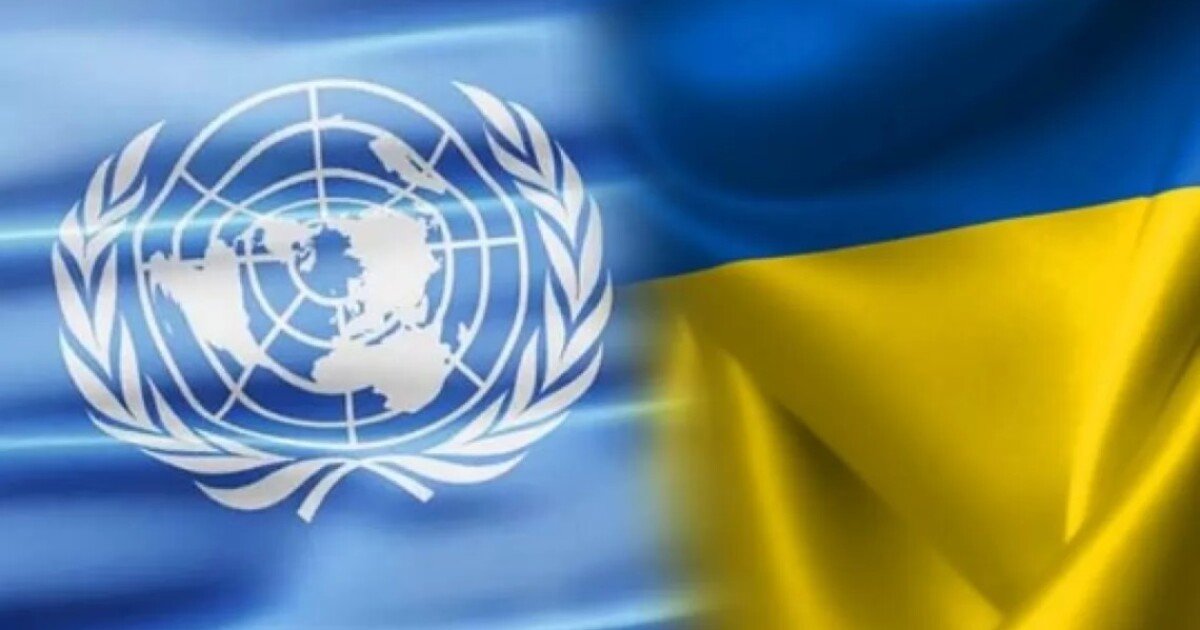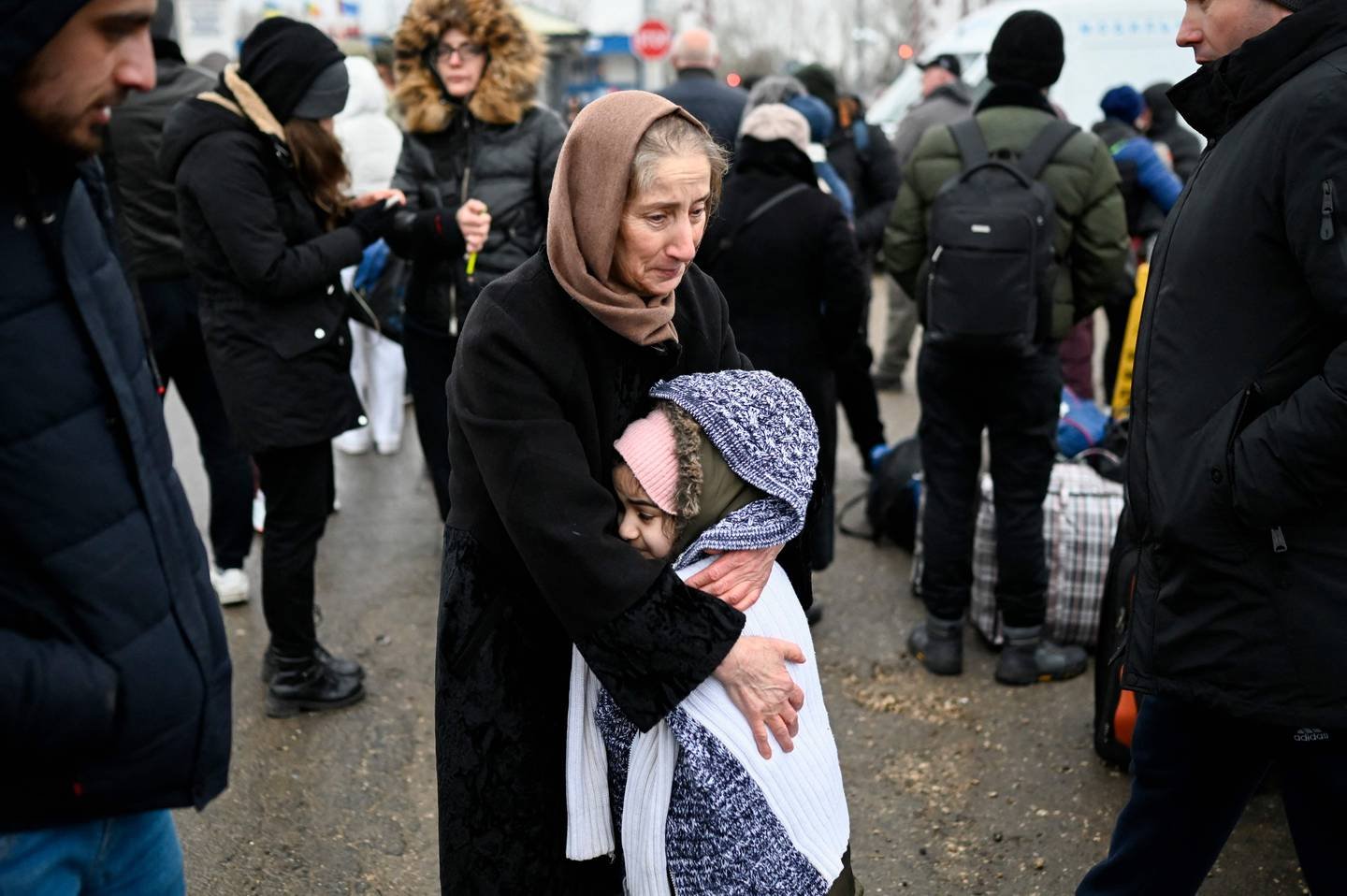In the evolution of mankind, the United Nations is a massive step forward in setting standards for peace, prosperity, and compassion. I am a huge fan of the United Nations. The United Nations has accomplished much in only 77 years. It has been instrumental in averting any massively destructive world wars, provided care for millions of refugees, mediated between angry nations, adjudicated disputes, made high standards of human rights a global reality, and developed economic incentives to avoid disputes. In response to the humanitarian crisis caused by the Russo-Ukraine War in the last 3 months, the United Nations is raising $2.25 billion for humanitarian assistance to Ukrainians citizens and refugees.
Let me dispel a myth about the UN - the UN was formed not only to keep the peace, but with 4 goals in mind. 1. The UN was to safeguard peace and security in order ‘‘to save succeeding generations from the scourge of war.’’ 2. The UN was ‘‘to reaffirm faith in fundamental human rights.’’ 3. The UN was to uphold respect for international law. 4. The UN pledged ‘‘to promote social progress and better standards of life.’’
However, admittedly the Russo-Ukraine War is a threat to the credibility of the United Nations. The Russian invasion of Ukraine in February has caused Europe's fastest-growing refugee crisis since World War II with more than 7 million Ukrainians fleeing the country and a third of the population displaced from their homes.
I’d like to say that the United Nations should be able to stop this war. This level of aggression between 2 large European sovereign states has not been seen since World War II. Isn’t this what the United Nations was formed to prevent? And, yet, the aggression and fighting continues on Ukrainian soil. Unfortunately, and as might be expected, Russia has prevented the Security Council from doing its job. Holding a veto power in the Security Council, Russia has prevented any legal military action by member states or by UN peacekeeping troops, making the UN appear helpless.
The United Nations has its challenges. It is not easy keeping the peace between 193 members. And, the biggest and most powerful members - the United States, Russia, and China - do not regulate themselves well. However, the United Nations is not an organization of allies. We don’t all get along all the time. The UN is intended to be an association of all international states who work out ways to keep the peace between themselves.
In 1945, at the end of WW II, the Soviet Union took an active part in the formation of the United Nations. Remember, from 1941 the Soviet Union was an ally against Hitler in the War. In fact, the USSR defeated the Nazis in Eastern Europe and was first to occupy Berlin. The Soviet Union suffered a third of all WW II casualties - 20 million Soviets - the most of any country in the war.
Stalin, initially hesitant to join the UN, insisted that there be veto rights in the Security Council and that alterations in the United Nations Charter be unanimously approved by the five permanent members. The Soviet Union demanded that all fifteen Soviet republics be made member states, until this was countered by the United States who said if the Soviet Union got to make all its republics members, then the United States’ 48 states should also be given separate membership. A compromise was made that agreed to make Ukraine and Byelorussia (today’s Belarus) full members, but states of the United States could not demand membership. Sorry, Texas.
In 1991, following the dissolution of the Soviet Union, the Russian Federation took the Soviet Union's United Nations membership, including its permanent seat on the United Nations Security Council. The question of automatic succession is not as obvious as it seems. Some scholars argued that with the end of the Soviet Union, Russia should have had to be admitted like any other new member, thus eliminating Russia’s permanent seat on the Security Council. In fact, this might have happened if in the early days after the breakup of the Soviet Union, all 14 Soviet republics had separated from Russia. But, in the beginning, only the 3 Baltic states (Estonia, Latvia, Lithuania) and Georgia declared themselves separate. In truth, politics was the real reason for Russian succession to membership. Eliminating Soviet membership, and thus forcing Russia to reapply, would have created a constitutional crisis in the United Nations when Russia was one of two great nuclear powers. It is questionable if the United Nations could have remained viable without the continued participation of Russia.
A reminder:
The United Nations has two voting bodies.
The General Assembly is made up of all 193 members - each has one vote. Voting in the General Assembly on certain important questions—namely recommendations on peace and security; budgetary concerns; and the election, admission, suspension, or expulsion of members—is by a two-thirds majority of those present and voting. Other questions are decided by a simple majority.
The Security Council is the only UN body that makes decisions pertaining to the maintenance of peace, including sending in peace keeping troops. It is made up of 5 permanent members and 10 non-permanent members. The 5 permanent members including Russian, China, France, the United States, and Britain have veto power over all decisions made by the Council. Notice neither Japan or Germany are on the Security Council, as the UN was created by the Allies of WWII and since they made the game, they get to make the rules. The Security Council‘s powers include establishing peacekeeping operations, enacting international sanctions, and authorizing military action. The Security Council is the only UN body with the authority to issue binding resolutions on all member states.
Un Timeline: Russo-Ukraine War
United Nations: In the event of a continuing, protracted war in Ukraine, 18 years of socio-economic achievements could be lost, with almost one third of the population living below the poverty line and a further 62 percent at high risk of falling into poverty within the next 12 months.
A Timeline
February 23: UN Secretary-General António Guterres spoke to the General Assembly saying, “the decision of the Russian Federation to recognize the so-called “independence” of Donetsk and Luhansk regions are violations of the territorial integrity and sovereignty of Ukraine and inconsistent with the principles of the Charter of the United Nations.”
February 24: Russia invaded Ukraine. UN Secretary-General António Guterres said to Russia, “Stop the military operation. Bring the troops back to Russia.”
February 25: Russia vetoed a resolution by the United Nations Security Council that would have declared Russian aggression against Ukraine a violation of Article 2, paragraph 4 of the Charter of the United Nations. The resolution called for Russia to immediately cease its use of force against Ukraine, and withdraw all its military forces immediately, completely, and unconditionally from that country’s territory. The resolution did not pass because of Russia’s veto.
February 27: The Security Council members, frustrated by the veto vote of Russia, voted that the General Assembly convene an emergency special session. This was a procedural act, not subject to the veto power, requiring only the vote of 9 members. The vote was 11 to 1. The Security Council last called for convening an emergency special session of the General Assembly was during the 1982 Lebanon War (Israel v. Syria), and in 1980 during the Soviet-Afghan war.
Russia urged Security Council members not to call the General Assembly, “We hear lies and deceit about the indiscriminate shelling of Ukrainian facilities, hospitals and schools” when “the Russian army does not threaten civilians in Ukraine; it does not shell civilian infrastructure.” Instead, it is the Ukrainian “nationalists” who are using civilians as humans shields and deploying rocket launchers in civilian areas — acts that are used by terrorists and must be condemned.”
February 28: General Assembly called an Emergency Special Session.
Secretary General: “The fighting in Ukraine must stop now.” Noting that bombardments by Russian have been pounding the country day and night, he said the capital, Kyiv, now finds itself surrounded. Ukrainians have been forced to shelter in subway stations and more than half a million have fled across the country’s borders. Citing credible accounts of serious damage sustained by residential buildings and other non-military infrastructure, he described the attacks as unacceptable and stressed that Ukraine’s sovereignty and territorial integrity must be respected.
Russia: The representative of the Russian Federation said the root of the current crisis lies instead with Ukraine itself. Kyiv flouted the Package of Measures for the Implementation of the Minsk Agreements, failed to engage in dialogue with the Donetsk and Luhansk regions and turned a blind eye to the people of Donbas. Against that backdrop, President Vladimir Putin decided to react. “There is a need to de-Nazify Ukraine,” he stressed, adding that his country is exercising its right to self-defense from Ukraine, which strives to obtain nuclear weapons, seeks North Atlantic Treaty Organization (NATO) membership, and is making false territorial claims against the Russian Federation.
Chili: Milenko Esteban Skoknic Tapic said the fact that the Assembly is meeting in emergency format for the first time in decades bears witness to the international community’s frustration at the Security Council’s failure to adopt a decision in favor of peace.
March 2: The General Assembly Member States adopted a resolution 141 to 5, demanding the Russian Federation immediately end its invasion of Ukraine and unconditionally withdraw all its military forces from that neighbouring country. The Assembly also deplored Belarus’ involvement in this illegal action. The 5 in opposition were: Belarus, Democratic People’s Republic of Korea, Eritrea, Russian Federation, and Syria. 35 nations abstained.
March 16: The International Court of Justice ruled in UKRAINE v. RUSSIAN FEDERATION: “The Russian Federation shall immediately suspend the military operations that it commenced on 24 February 2022 in the territory of Ukraine.”
April 7: The UN General Assembly adopted a resolution calling for Russia to be suspended from the Human Rights Council. The resolution received a 2/3 majority of those voting. The vote took place on the anniversary of the 1994 genocide in Rwanda, and the Ukrainian ambassador drew parallels between the crimes committed by Russia with the Rwanda genocide.
Ukraine: Ukrainian Ambassador Sergiy Kyslytsya urged countries to support the resolution. “Bucha and dozens of other Ukrainian cities and villages, where thousands of peaceful residents have been killed, tortured, raped, abducted and robbed by the Russian Army, serve as an example of how dramatically far the Russian Federation has gone from its initial declarations in the human rights domain.”
May 19: “United Nations Secretary-General Antonio Guterres warned of a global food crisis exacerbated as a result of the Russian invasion of Ukraine. Guterres said Ukraine and Russia together produce almost a third of the world's wheat and barley and half of its sunflower oil, and Russia and its ally Belarus are the world's number two and three producers of potash, a key ingredient of fertilizer. The secretary-general said the number of people facing severe food insecurity has doubled in just two years from 135 million pre-pandemic to 276 million today.” DW News. Note: DW News is Deutsche Welle (German Wave), a German public state-owned international broadcaster funded by German federal taxes.
June 8: United Nations reports - Food prices are at near-record highs. Fertilizer prices have more than doubled. Without fertilizers, shortages will spread from corn and wheat to all staple crops, including rice, with a devastating impact on billions of people in Asia and South America, too. Record‑high energy prices are also triggering blackouts and fuel shortages in all parts of the world, especially in Africa.

